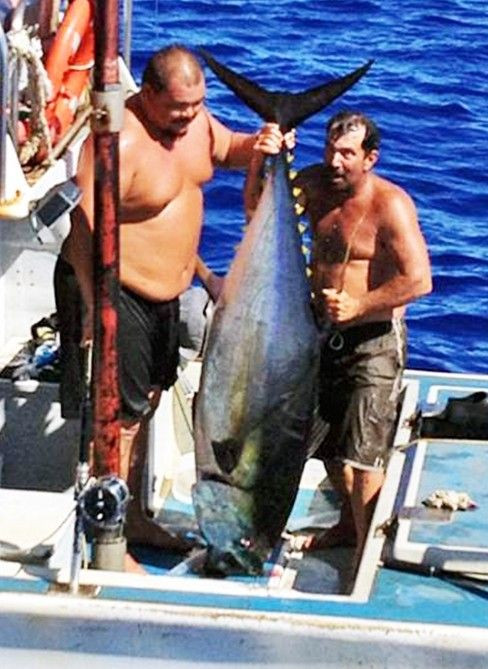Tuna Capsized Boat: 230-Pound Ahi Pulls 54-Year-Old Anthony Wichman Into Sea, Nearly Drowns Him [VIDEO]

Fisherman Anthony Wichman, 54, knew he was dealing with a monster of a fish while angling off the coast of Kauai, Hawaii this past Saturday. That still didn't prepare him for the 230-lb. Ahi tuna that capsized his boat and nearly took his life.
Wichman's daughter, Anuhea received a frantic call from her father who was struggling to breathe and clinging to whatever part of his 14-foot vessel that was still afloat, KOHN reported. According to Anuhea, her father's fishing line became tangled around his leg during the struggle and the fish dove straight for the bottom after it was hooked in the eye.
"He gaffed it once in the back," Anuhea told KHON. "And the second gaffe went straight into the fish's eye and that caused the fish to take a final dive. And he dove straight down."
After receiving the panicked call form her father, who she says was "hyper-ventilating and puking," she quickly informed the Coast Guard that then located Wichman through a GPS reading on his cell phone and reached him via helicopter.
Wichman's daughter also notified fellow fishermen Abraham Apilado and Jordan Ornellas who said they were still three or four miles away "when the Coast Guard found him."
While the Coast Guard pulled Wichman to safety, good samaritans Apilado and Ornellas jumped in the water to salvage Wichman's boat and equipment. To the surprise of everyone on the scene, the 230-lb. behemoth was still attached to the boat, and the two local fishermen were able to bring it aboard. Wichman's boat was towed back to Port Allen in Kauai.
Following the harrowing experience, Wichman was treated for minor scrapes and burns due to the fishing rope. To show appreciation for their efforts, Wichman's family gave the prized catch over to the two heroic fishermen.
According to TakeMeFishing.org, the best method for rescuing someone who has fallen overboard is known as Reach-Throw-Row-Go. Reach requires extending an oar or rod to the person in order to keep them afloat. If reaching out to the distressed swimmer fails, throw them a life-saving device, which should be aboard every fishing vessel.
When throwing a safety object to someone overboard is ineffective, the next step should be to row closer to their vicinity. Finally, if all else fails, enter the water and offer your assistance, but do so with the utmost caution and only if you're confident in your swimming abilities. Distressed swimmers are not in control of their bodies and can cause serious damage to the person trying to save them.



























